3-Day: Dialectical Behavior Therapy Certification Training – Lane Pederson (Digital Seminar)
Description:
Dialectical Behavior Therapy (DBT) is so popular because it works!
It even works with your most difficult clinical cases from suicidal and self-injurious behaviors to depression, anxiety, trauma, and substance use disorders.
Watch internationally recognized DBT expert, speaker and author Dr. Lane Pederson in this 3-Day Certification Training and learn the DBT skills, tools, and techniques to transform your practice and finally see results with clients who have been chronically stuck.
Whether you’re interested in putting together a DBT Program, or simply want to add DBT to your eclectic or integrative style, Dr. Lane Pederson makes DBT accessible, practical, and gives you the confidence to bring this approach straight to your clients.
Best of all, upon completion of this live training, you’ll be eligible to become Certified in Dialectical Behavior Therapy (C-DBT) through Evergreen Certifications. Certification lets colleagues, employers, and clients know that you’ve invested the extra time and effort necessary to understand the complexities of using DBT in counselling. Professional standards apply.
Purchase today and get the skills and confidence you need to successfully help your clients with the power of DBT!
Outline:
Foundations of DBT
- Biosocial Theory
- Characteristics of DBT
- DBT as an evidence-based practice
- Dialectics: the balance of acceptance and change
DBT in the Clinical Setting
- Application of DBT in the individual and group therapy setting
- Skills training methods
- Validation strategies
- Research and limitations
DBT SKILLS TRAINING
Mindfulness: Cultivate the Skills at the Core of Successful DBT Therapy
- Acceptance vs. judgement
- Wise mind – achieve harmony between emotion and reason
- Accessible exercises for building mindfulness skills
- Observation – keep clients calm, centered and aware
- Describe – overcome assumptions
- Participation – release judgement and fear
- Strategies for teaching mindfully and exercises for therapy
Interpersonal Effectiveness: Skills to Build Better Relationships and Lives
- Tools to identify strengths
- Balancing relationships with self-respect
- Exercises and role play guidance on how to:
- Develop healthy assertiveness skills
- Enhance conflict resolution skills
- Build empathy
- Keep problems from building up
- Resist pressure
- Top strategies for changing behavior
Emotion Regulation: Practical Skills for Healthier Emotions and Greater Resilience
- Strong emotions and poor coping skills
- How to change unwanted emotions
- Reduce emotional vulnerability while practicing self-care
- Opposite action skills to reduce maladaptive behavior
- Emotion Regulation exercises
- Self-soothing strategies that work
- Learn the sleep hygiene protocol
Distress Tolerance: Skills to Cope with Painful Moments and Survive Crisis
- Developing crisis survival and reality acceptance skills
- 4 options to solving problems
- Problem solving case studies
- Using pros and cons to make decisions
- STOP skills to manage crisis situations
- The steps to practicing radical experience
- Tools to accept change
DBT in Clinical Practice
- Analyzing behaviors: chain analysis & missing links analysis
- Diary cards and homework with clients
- Identify therapy interfering behaviors
- Develop skills to identify and manage self-harming & suicidal behaviors
Self-Harm and Suicidal Crises: A Roadmap for Assessment and Intervention
- Screening and assessment tools for self-harming behaviors
- Interventions and treatment considerations for the self-harming population
- Suicide risk as a skills deficit problem
- Tools and techniques to assess for level of risk
- Firearms, medications, and lethal-means restriction plans that work
- Safety plans and crisis intervention
Adapt DBT with Different Populations
- Children and adolescents
- Trauma survivors
- Substance abusers
DBT: The Therapist and Consultation Group
- 3 ways to decrease therapist burnout
- The characteristics of an effective DBT team
- Integrating DBT into your practice
NLP online course
So what is NLP?
NLP stands for Neuro-Linguistic Programming. Neuro refers to your neurology;
Linguistic refers to language; programming refers to how that neural language functions.
In other words, learning NLP is like learning the language of your own mind!
NLP is the study of excellent communication–both with yourself, and with others.
It was developed by modeling excellent communicators and therapists who got results with their clients.
NLP is a set of tools and techniques, but it is so much more than that.
It is an attitude and a methodology of knowing how to achieve your goals and get results
Preview Information:
Original Page
Archive Page
More Course: NLP – HYPNOSIS – PHILOSOPHY
Outstanding Course:Psychomed – Better You


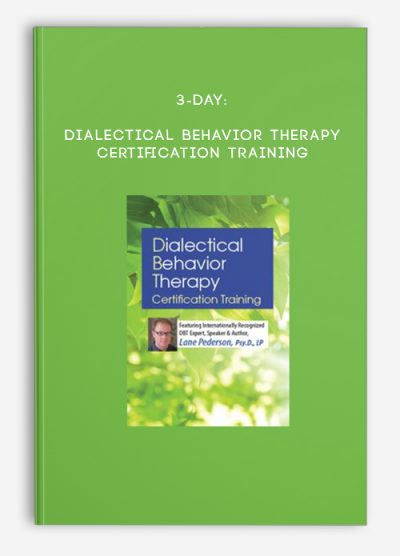
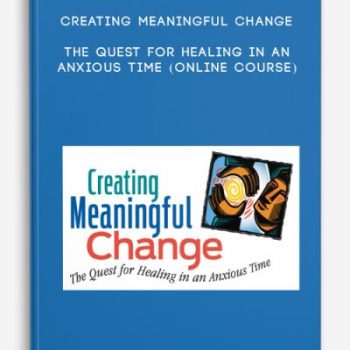
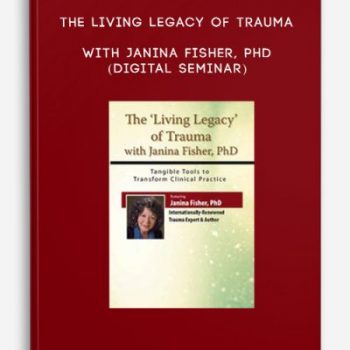
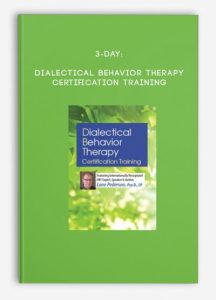






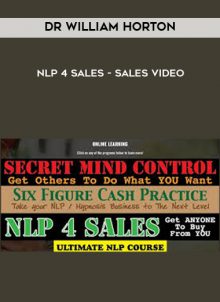

Lord –
This is Digital Download service, the course is available at Vincourse.com and Email download delivery.